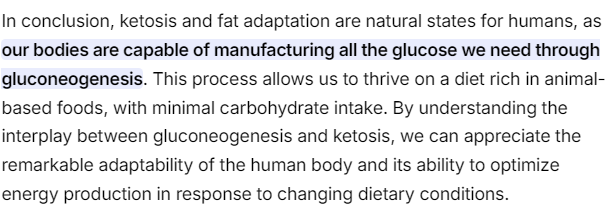Today we return to Iron Magazine, the supplement-based “bodybuilding and fitness magazine” platform that once upon a time tried to ride on the popularity of our online magazine IronMag Online. This time, their writer Matt Weik tackles the Cyclical Ketogenic Diet (CKD.) So, let’s see what he has to say, and I’ll add my thoughts from my 28-years of experience with ketogenic diets and elite-level coaching.
“Many people have heard of, tried, or have considered trying the ketogenic diet. But very few people have heard of the cyclical ketogenic diet.”
Perhaps. However, my first “contact” with the ketogenic diet was Dan Duchaine’s BodyOpus diet back in 1996. And I started writing about CKD variants in 1997 for our IronMag Online as I used them myself — and also how to use them in combination with Intermittent Fasting, as in the early Animal Diet (one small pre-workout meal and one large post-workout meal.)
“The cyclical keto diet, also known as carb cycling keto, might be ideal for hard-training athletes who need to replenish muscle glycogen stores. This method involves “cycling” between periods of very low-carb, high-fat intake and high-carb, low-fat intake.”
To put it simply, a ketogenic diet consists of fat and protein with only trace-amounts of carbohydrates as naturally found in some foods (even meat has small amounts of stored glycogen, as in glucose.) Usually, because people were deceived into consuming vegetables and other plant-matter, the unofficial limit for the ketogenic diet was set at about 20 to 30 grams of net carbohydrates a day and with fat covering about 65 to 80% of your energy intake (and the rest was covered by protein.)
While the strict ketogenic diet was followed year-round, the cyclical ketogenic diet allowed for alternating days of strict ketogenic dieting with days with a higher-carbohydrate intake. The premise was to “load up” and oversaturate your glycogen stores in hope to get an “anabolic burst” and to prevent “muscle loss” during strict dieting.
As for Duchaine’s BodyOpus, you followed a strict ketogenic diet throughout the week, and then you switched it around and consumed a lot of carbohydrates and protein for two days, usually over the weekend.
With that said, most of these diets and dietary plans were made for fat-loss, and not as a life-long healthy approach to food and better eating habits. Nor were they ever really used for muscle-gain phases either, as people were brainwashed to believe that carbohydrates were necessary for muscle growth.
“Some research suggests that increasing your carb intake on certain days boosts muscle mass and athletic performance.”
Yes, because every test subject in these studies, just as most people and athletes in general, are adapted to a toxic and damaging diet that is high in carbohydrates, as in the typical modern diet or any stupid backwards fitness diet. That means that they have a very low fat adaptation, that their bodies have temporarily lost their natural ability to run efficiently on fat and ketones, and that their bodies struggle to manufacture glucose through gluconeogenesis once the carbohydrates are removed from the diet. Keep in mind that someone who is used to carbohydrates might need 6 to 12 weeks on a ketogenic diet (totally without carbohydrates) before they become somewhat fat adapted and can use fat efficiently as fuel again. That means that after removing all carbohydrates it can take 12 weeks before your performance is back to where it was and even longer before your performance surpasses that of someone consuming carbohydrates. However, once fully fat adapted, you have limitless energy and will outperform anyone who consumes carbohydrates.

So, returning to these useless and retarded studies, this means that every time they reintroduce carbohydrates, their performance goes up, because they are struggling once carbohydrates are removed. And this happens because they have not gone through a fat adaptation phase of following a ketogenic diet for at least 12 weeks before starting the study.
Also, if you are used to carbohydrates and cut them out, you will lose muscle glycogen and the water attached to it from the muscle cells, temporarily giving the illusion of carrying less muscle mass. Again, this is because your body is not fat adapted and cannot keep up with producing its own glucose through gluconeogenesis. Restoring our natural glucose production through gluconeogenesis can take 6 weeks or longer.


However, once fully fat adapted, your body will produce all the glucose you’ll ever need, and your glycogen stores will be filled to the rims within hours after exercise, exactly as if you were consuming these toxic carbohydrates.
This simple phenomenon of adaptation is something that all these “researchers” forget about, or simply does not take into consideration out of sheer ignorance or stupidity.
Keep in mind that humans are obligate hyper carnivores. We are built to run on animal fats, on a “ketogenic diet.” That is our natural diet and that is why our bodies can produce its own glucose, and also produce it a lot quicker than you can absorb it by consuming carbohydrates. If you are fully fat adapted as an athlete, you are superior in every single way.


To summarize, once you remove all carbohydrates and switch to our natural way of eating where fat is the primary energy source, the initial adaptation (days 1-3) is from using up stored glycogen in cells and the liver — and this is where you might see quite a dramatic drop in body weight. During the intermediate phase (2 to 4 weeks) we see a slow and gradual increase in gluconeogenesis while your cells begin to adapt to using fat as a primary energy source. Your cells start to convert stored fat into ketone bodies, and your liver produces ketones to fuel your brain and other organs. You will likely not feel your best during this phase. The final phase of fat adaptation where gluconeogenesis is restored and your body becomes efficient in using fat and ketones as fuel again can take another 4 to 12 weeks, and sometimes up to six months or longer, depending on the damage you have caused to your body. During this phase, as fat adaptation takes place, you will likely gain some weight, primarily because of more muscle glycogen and thus water inside the cells. So, keep in mind that some people may struggle for quite some time before they feel better when they transition to a ketogenic diet.

“On the cyclical keto diet, you consume large amounts of quality fats and very few carbs (less than 50 grams of net carbs per day) for five to six days. Then, on the “carb refeed” day, you increase your carb intake to around 150 grams.”
Usually, you aim for less than 25 grams of net carbs, and if used by bodybuilders, they consume a lot more carbs than 150 grams during their “carb refeed.”
Back in the days, we usually aimed for 250 to 500 grams. Very unhealthy and not recommended.
“Full ketosis isn’t suitable for everyone. Incorporating clean carbs like sweet potatoes, squash, and white rice one day a week helps support the healthy functioning of body systems that require some carbohydrates.”
Are you actually that ignorant of human physiology, or just retarded? Ketosis, as in fat adapted, is our natural physiological state. We might temporarily get out of ketosis for a few hours if we have a big meal with a lot of protein, but it’s still our natural state that we should be in most of the day.


And there are no “body systems” that require carbohydrates. There are however some tissues that require glucose, hence our very efficient glucose-making metabolic pathway called gluconeogenesis. And remember, glucose is extremely toxic to soft tissues and blood vessels, which is why gluconeogenesis and blood glucose is tightly controlled, and why consuming carbohydrates that convert to glucose and elevates blood glucose in a very unnatural way is so extremely damaging.
Benefits of Cyclical Ketogenic Diet
“1. It may help improve muscle growth
Anabolic hormones, such as insulin, are suppressed on very low-carb diets like keto. Insulin regulates muscle growth by transporting amino acids and glucose into muscle cells, boosting protein synthesis, and reducing protein breakdown.”
No, insulin is not “suppressed” on a very low-carb diet. As a “ketogenic diet” is our natural diet and your body manufactures its own glucose as needed, insulin will be produced accordingly, as in the exact amounts needed. Nothing is “suppressed” in its natural state. However, when you consume carbohydrates that break down to glucose, your body has to upregulate its production of insulin to abnormal levels to desperately try to remove as much glucose as quickly as possible to minimize the damage it otherwise will do to your tissues.
“The cyclical keto diet can strategically raise insulin levels on certain days, allowing you to leverage insulin’s anabolic effects to help improve muscle growth.”
What is actually happening when you consume carbohydrates and flood your bloodstream with glucose is that you oversaturate your cells with glucose stored as glycogen — as your body has no other option than trying to store it or use it (or you would die of glucose poisoning.)

As your cells have to take in more than they actually need, which is a stress and slowly destroys the cells, they are also saturated with other nutrients as well. This might have an “anabolic advantage” if your only goal is to build muscle mass. However, you are destroying your body in the process, and there are many other factors in play. Unless your training is truly on point and you have accomplished a perfect balance of muscle tissue breakdown that you are able to recover from, unless you also get all the nutrients you need for tissue repair and recovery, unless your hormones are in perfect balance (especially testosterone,) unless you get enough sleep and so on, and on, and on; simply pushing in more nutrients into the cells will do very little for your gains, but a lot of damage — especially in the long run.
So, sure, if your biggest passion is to build muscle mass and become a freak, cycling carbohydrates or taking them around your workout might give you a few grams of extra muscle mass in a year, perhaps. But then again, you need to make sure that everything else is on point, especially your anabolic steroid cycles, which will really shorten your lifespan.
So, is it worth it?
Also, a CKD is mostly used for fat loss, and in that case, it will be a better option for the anabolic-steroid-enhanced athlete than any other diet relying on carbohydrates. Still, a real animal-based ketogenic diet at maintenance and with some minor fasting for fat loss would be better, and a lot healthier.
“2. It may improve your workout
Working out on a keto diet is entirely possible and can even enhance ketosis while maintaining your fitness levels. You can engage in activities like cardio (running and cycling) and resistance training (lifting weights) without issue.”
Yes, once you have been following a ketogenic diet for at least 3 weeks, such activities should not be a problem as some fat adaptation has occurred. However, if you do a cyclic ketogenic diet from the start, fat adaptation will take longer, as you continuously reintroduce carbohydrates. So, performance will be worse on a CKD than on a strict ketogenic diet, or that of our natural and perfect carnivorous diet.
“However, during longer workouts or exercises requiring short bursts of energy, such as HIIT, sprinting, and agility training, your body may experience energy dips. The muscles used in these explosive workouts can tire or fatigue easily. Having more carbs in your diet can help sustain energy levels, allowing you to push harder and improve your performance during high-intensity activities.”
Only if you’re not fully fat adapted. We’ve been through this.
And having carbs will not allow you to sustain energy levels, but being fat adapted will, as you can go on for as long as you have body fat to use. Again, gluconeogenesis is more effective than consuming carbohydrates for generating glucose.

“3. It improves gut health
The cyclical ketogenic diet can also benefit your gut health. On low-carb days, you can consume plenty of gut-friendly butyric acid found in butter or ghee.”
Yes, our digestive system is constructed for animal-based foods. Anything else will mess it up.
“On high-carb days, specialized microbes in your gut can produce butyrate by fermenting dietary fiber from low-toxin vegetables.”
No, fiber is extremely damaging to our intestines. But at least you admit that vegetables are toxic, although there are not really any vegetables that can be classified as “low-toxic.” Well, perhaps cucumbers and squash if peeled, which are mostly water.
“4. It may improve an athlete’s performance
Refeeding with carbohydrates can benefit elite athletes on very low-carb diets. A study involving 29 elite racewalkers found that periodic high-carb intake improved performance.
The study showed that walkers who consumed high-carb meals before training sessions experienced significant performance improvements compared to those on a standard keto diet. The researchers concluded that athletes who periodically increased their carb intake saw enhanced performance, while those adhering strictly to a keto diet did not.”
Again, we’ve been through this. None of these “racewalkers” had been following a ketogenic diet for at least 12 weeks, preferable 24 weeks, prior to the study, so none of them were truly fat adapted.
“5. It makes keto easier
Restricting carbs on the keto diet can be challenging, especially when you see someone enjoying a fruit or chocolate. The cyclical ketogenic diet allows you to incorporate foods like apples (even several times a week), which can boost your will to continue the diet.”
No, it doesn’t, not really. For most people it will trigger binging or eating disorders. It’s the same thing as with any restricted diet where you allow “cheat days” or “refeeding days.”
Also, all types of dieting for fat loss are backwards. You should adopt our natural human diet, which is ketogenic in itself, and then eat to satiety. Simply add in a day or two of fasting every week, and your body fat will literally melt away without damaging your metabolism or having to “starve” during the weeks.
And that was it for this time. To conclude, adding in some carbohydrates to oversaturate your cells with glycogen and other nutrients might have a small benefit for building muscle mass or recovering from extreme exercise, as seen among elite athletes at the highest level, especially among those who use anabolic steroids and other performance enhancing drugs and thus have a higher protein synthesis and recovery ability. Still, I would advise them to follow an animal-based diet that is mostly ketogenic, as that will ensure that they get all the nutrients they need as well as it will reduce some of the damage they expose their bodies to on a daily basis. In the long run, they will perform better with a healthier body.
Also, if fully fat adapted, your body has the ability to manufacture all the glucose it needs while having unlimited resources of energy. As fully fat adapted, you will always outperform anyone who consumes carbohydrates. And, among all my clients and other ‘carnivores’ I have contact with, all claim that they have a much easier time building both muscle mass and keeping lean then when they followed a diet that had carbohydrates in it. Your biology knows best.
Personally, I’ve been fully carnivore since early 2018, and now at the young age of 50, although I’ve been involved and active in the industry for over 30 years, I’m now in the best shape and the best health of my life.
If you need help with fat loss, your health, nutrition, and/or transitioning from your current way of eating to our natural species-appropriate, species-specific way of eating, I’m available for both coaching and consultation.
And if you found the article and my insights helpful and enjoy my free information, please consider donating to help pay the webhosting bills and keep the site running. And if you’re interested in discussing and sharing information with likeminded people, consider joining our uncensored community at Ungovernable.se. Thank you!


